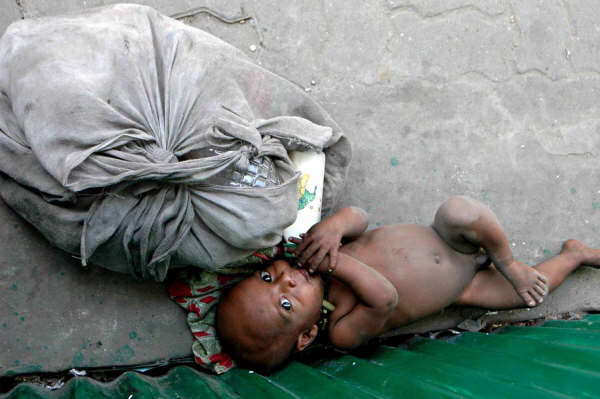Bangladesh, the world’s seventh most populated country, is moving to provide its over 150 million people with official birth certificates.
Recent reports indicate that 40 percent of the population had received a birth certificate by the end of March 2008, while more than 30 percent had been registered and would receive their certificates soon.
A vigorous campaign is now under way to register the remaining 30 percent of the population who are hard to reach, mobile, invisible or live on the fringes of mainstream society.
“[The] birth registration act of 2004 makes it mandatory for every citizen to possess a valid official birth certificate by 2009,” said ABM Saiful Islam Chowdhury, director of the country’s Birth and Death Registration Project, which is supported by the UN Children’s Fund (UNICEF) and funded by the Netherlands and the European Commission.
The government declared 3 July as Birth Registration Day to highlight the importance of birth registration for every child and adult, with support from UNICEF and Plan International, an international development agency working with and for children.
Exploitation
The near absence of birth certificates hitherto has often been cited for the proliferation of various forms of child abuse, exploitation and deprivation, say experts.
“Only those who migrated overseas had to have one [birth certificate] issued by the appropriate authorities in their places of birth,” said Muhammad Obaidullah, former director of the Institute of Statistical Research and Training at Dhaka University.
 Photo: Shamsuddin Ahmed/IRIN  |
| Despite a government ban on child labour, no law enforcement agency can stop Meghna, 10, from working as a domestic helper. Her parents would insist that she is 18 and there is no document to prove them wrong |
Despite a government database on child labour, hundreds of thousands of children under 18 are being employed doing hazardous jobs due to the government’s inability or ineptness in apprehending violators.
Under-aged girls in the commercial sex business are often claimed by pimps to be over 18.
Children, particularly under-aged girls, are often trafficked outside the country with fake documents indicating they are 18, and child marriage, an age-old social menace, has continued unabated: A girl under 18 could marry a boy under 21 if their parents deemed them sufficiently mature.
Also, although the law protects children under 13 from bearing criminal responsibility, there have been numerous cases where boys as young as seven have found themselves in court on charges of murder, rape or arson.
“Unscrupulous employers would insist that they [employees] are over 18. The law enforcing agencies could not challenge them, because there was no official document to prove the workers’ age,” said Syed Ahmad, a magistrate. “Unscrupulous employers would always take advantage of this loophole,” he lamented.
Rights of the child
“Birth registration certificates will enhance our vigilance to stop child trafficking, child marriage and abuse of children,” said LGRD adviser Anwarul Iqbal.
UNICEF is especially focusing on vulnerable children such as those living on the streets, working children, children of sex workers, indigenous children and refugee children, as they are more likely to be missed out.
“The absence of a birth certificate puts them at greater risk of discrimination, abuse and neglect,” Muhammad Azizur Rahman, a child protection officer with UNICEF Bangladesh, said.
“Birth registration will prevent early marriage, ensure all children are enrolled in school at the right age, protect underage children from working, and ensure special treatment for children in the juvenile justice system. With a birth certificate, a child will be less easily trafficked or exploited,” he explained.
ID cards
 Photo: Shamsuddin Ahmed/IRIN  |
| There are thousands of sex workers in Bangladesh who live and die unrecorded, most of whom have no place to sleep |
Bangladesh’s Election Commission has already issued such ID cards to more that 80 million voters or 100 percent of the adults and 52 percent of the total population.
“If national IDs are accepted as birth certificates as well, it would help reduce the cost involved in birth registration of adults as well as avoid duplication of work. We are trying to coordinate that,” said ABM Saiful Islam Chowdhury of the Birth and Death Registration Project.
To accelerate the process, UNICEF is also supporting strategies to link the registration of young children to immunisation services, as well as the enrolment of children in school.
sa/ds/cb
This article was produced by IRIN News while it was part of the United Nations Office for the Coordination of Humanitarian Affairs. Please send queries on copyright or liability to the UN. For more information: https://shop.un.org/rights-permissions





